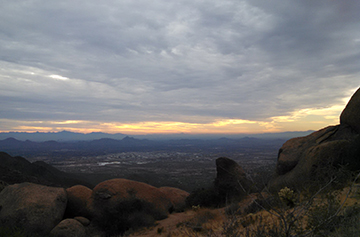Why is it that hate and violence have become ordinary occurrences in our world? Most recently it is the nine lives that were taken at the Emmanuel AME Church last week.
For some reason this church shooting has affected me to my very core. I feel sorrow and sadness for the victims that had so much more of life to share. Anger that someone would chose to violate a sacred space that is known for grace, hope and love. And awe for the forgiveness that has been shown to the 21-year-old, who has said he shot the black worshippers in hopes of sparking a race war.
 What is so powerful is the way the church members responded. In the moments when their sacred space had been violated in the midst of prayer they responded with grace and truth—not anger or hate. They continued to turn to Jesus for answers.
What is so powerful is the way the church members responded. In the moments when their sacred space had been violated in the midst of prayer they responded with grace and truth—not anger or hate. They continued to turn to Jesus for answers.
We could go on and on about how we respond to the hate crimes and racism that have hurt others. We could talk about Jesus’ response to love our enemies and pray for those who persecute us. We could stand up for justice and campaign for equality. Or we could stand for what has been lost—a life of true discipleship.
I have realized in this past week, that this massacre is not just something to be sad about, but something that requires action by all Christians. The members of Emmanuel AME Church have responded with love, worship, prayer and yes, forgiveness.
I have been reading Dietrich Bonhoeffer’s book The Cost of Discipleship where he eloquently describes the dichotomy of cheap grace versus costly grace. Cheap grace is the grace we give ourselves. We put on blinders to ignore injustice, we proclaim forgiveness, but don’t live it and we become Sunday Christians instead of everyday followers of Christ. Costly grace on the other hand calls for complete change. To forgive and really mean it, to love even when we don’t want to, to work together in the midst of disunity and to trust in the grace of Jesus Christ to guide us each and every day.
We have a choice, as followers of Jesus, to see this event among others and simply be saddened… or we can respond as disciples in our very own community by loving, showing grace and providing hope in Christ. Our world needs costly grace. It needs Jesus. How will we respond?












